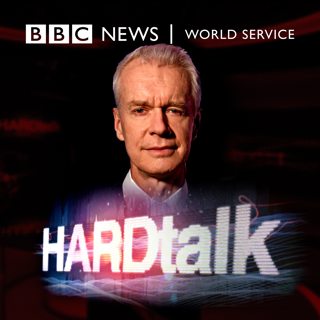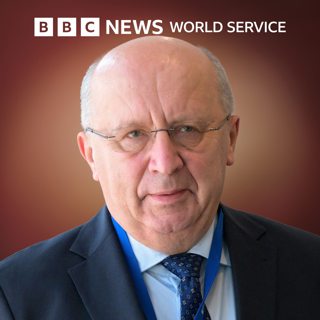
Zoran Milanovic – Prime Minister, Croatia
On July 1st, Croatia will be the twenty-eighth and newest member of the European Union. Stephen Sackur talks to Prime Minister, Zoran Milanović. He sees his country’s accession as a sign of the transformation from war torn land to stable democracy. However, both Croatia and the EU have serious economic problems. So, does either side really need the other?
24 Maj 201323min

Sir Alan Parker - Film Director
Sir Alan Parker is one of Britain's most experienced and successful film directors. His work ranges from the stomach churning realism of Midnight Express to the feel good entertainment of Bugsy Malone and Fame. He has never cared much for film critics and has always held strong views on the future of the film industry. In this digital age, are movies as central to our culture as they used to be?
22 Maj 201323min

Alan Johnson – UK Home Secretary 2009 – 2010
The British public appears increasingly alienated from mainstream politics and politicians - a phenomenon which can also be seen in other mature democracies. Stephen Sackur speaks to Alan Johnson, who held a series of cabinet posts in the last Labour Government. He is that rare breed, a politician who grew up in poverty and worked his way up from the bottom. Has today’s professionalised class of politicians lost touch with real life?
17 Maj 201323min

Thomas Drake – Former Senior Executive, US National Security Agency
When it comes to national security does the need for secrecy override the public's right to know? It is a hot debate in many democracies, none more so than the United States where the Obama Administration has gone after leakers and whistle-blowers with unprecedented ferocity. Stephen Sackur speaks to Thomas Drake, a former intelligence official inside America's National Security Agency. His unhappiness with things he saw led him to leak information to a reporter. He ended up prosecuted by the government he had served. Did he deserve the trouble he got?
15 Maj 201323min

Zainab Bangura - UN Special Representative on Sexual Violence in Conflict
Zainab Bangura, the UN Special Representative on Sexual Violence in Conflict, says that for too long wars have been waged on the bodies of women. Over the past two decades the list of war torn countries where women and children have been subjected to systematic rape and sexual abuse has grown shamefully long, from Bosnia and the Democratic Republic of Congo to Syria. HARDtalk asks - how can the most vulnerable be protected?(Image: Zainab Bangura, UN Special Representative on Sexual Violence in Conflict. Credit: Reuters)
10 Maj 201323min

Pravin Gordhan – Finance Minister, South Africa
South Africa has been told by the old colonial power, Britain, that it doesn't need development aid any more. Shaun Ley speaks to Pravin Gordhan, South Africa’s finance minister. His national development plan seeks to raise more people out of poverty through economic growth. But his party, the ruling ANC, is facing an election, its union comrades are no longer playing ball, and growth has slowed. In reality, has the country Britain describes as Africa's economic powerhouse stalled?(Image: Finance Minister Pravin Gordhan(left) and Finance Minister Wolfgang Schaeuble(right). Credit: Reuters)
8 Maj 201323min

Lord Patten - Chairman of the BBC Trust
Almost three hundred million people across the world consume BBC content every week. But does the BBC deserve your trust? After going through a prolonged internal crisis marked by serious internal failings HARDtalk speaks to the ultimate overseer of the BBC, Chairman of the BBC Trust, Chris Patten. He insists it's the best broadcaster in the world. Stephen Sackur asks if you should believe him.
3 Maj 201323min

Lord Browne – Chief Executive BP (1995 – 2007)
He made his name and fortune in the oil industry and in the process became one of Britain's best known business leaders. John Browne was BP's boss for 12 years. He expanded and diversified one of the world’s fossil fuel giants. Now he's back in the thick of the energy debate backing a company eager to develop shale gas production in the UK. His career has been defined by the search for fossil fuels and economic sustainability. Can we have both?
1 Maj 201323min






















